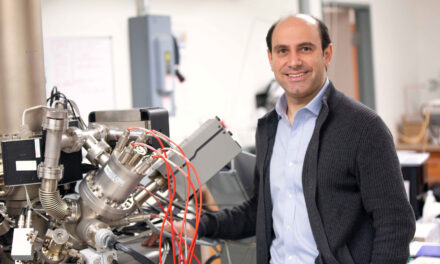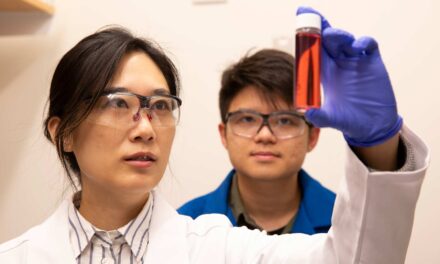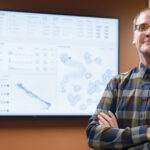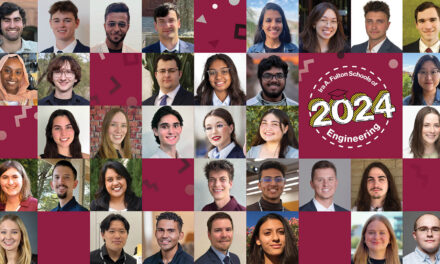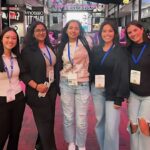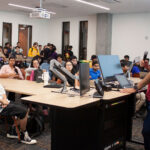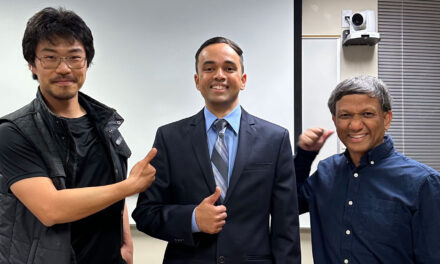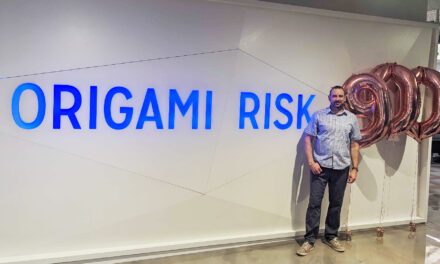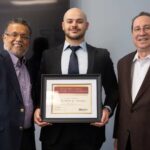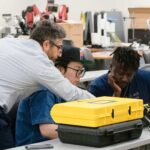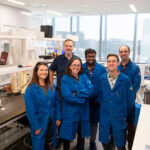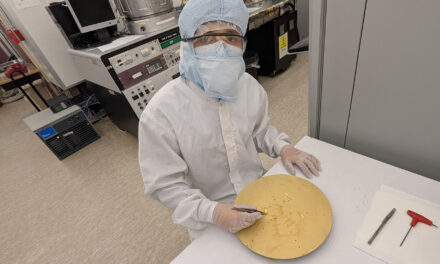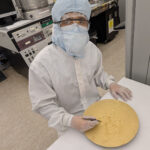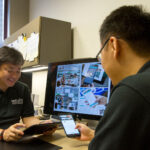
ASU and industry partner for manufacturing research innovation
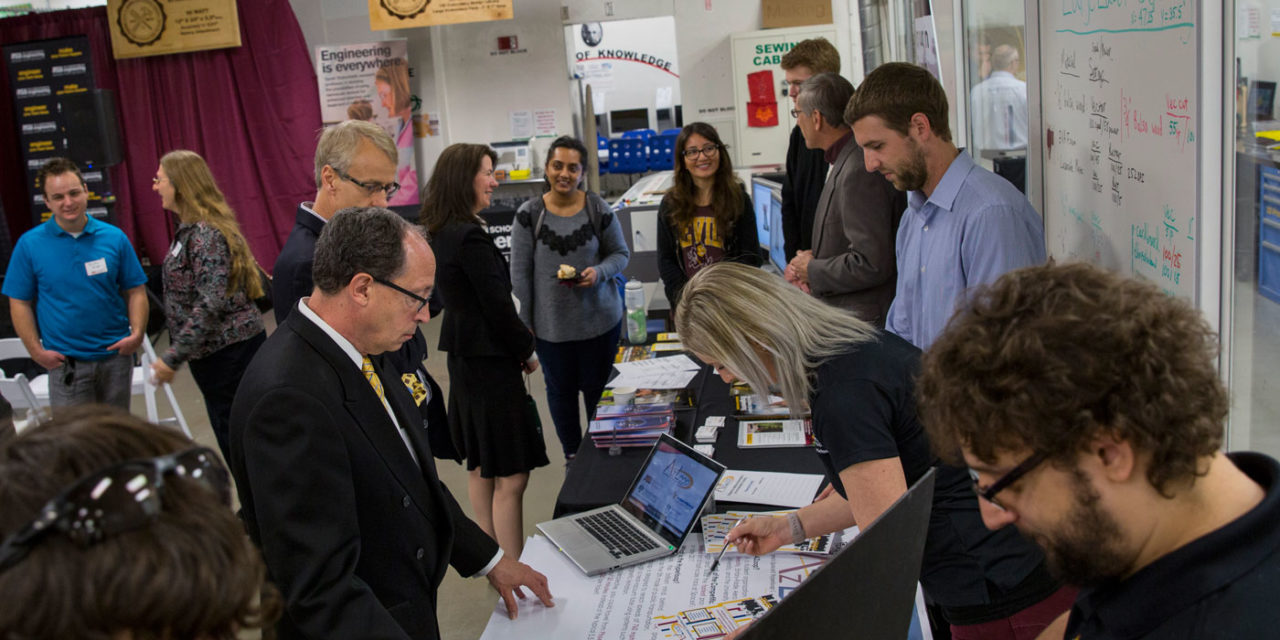
Industry, education and business representatives browse student projects and research at the Manufacturing Research and Innovation Hub’s grand opening on Wednesday, Jan. 18. Photographer: Jessica Hochreiter/ASU
As 3D printing evolves, the field of manufacturing is experiencing a paradigm shift through additive manufacturing — producing parts layer by layer via computer control. Beyond changing how parts are made, the industry is now thinking about design in new ways and reconceptualizing engineering design.
To stay competitive at the forefront of this industry, Arizona State University’s Ira A. Fulton Schools of Engineering has launched the Manufacturing Research and Innovation Hub.
Located on the Polytechnic campus, which is home to the Polytechnic School, one of the six Fulton Schools, the 15,000-square-foot space is the largest additive manufacturing research facility in the southwest. It boasts $2 million in cutting-edge plastic, polymer and metal 3D printing equipment along with advanced processing and analysis capabilities to allow students, faculty and industry partners to stay on the forefront of the rapidly growing additive manufacturing sector.
“This facility is a culmination of the kinds of energy and ideas that we think are important to driving a very modern educational experience and doing very creative things in research,” says Dean Kyle Squires at the launch event on Wednesday, Jan. 18.
Honeywell Aerospace, Concept Laser Inc., Phoenix Analysis & Design Technologies Inc. (PADT) and Stratasys Ltd. partnered with the Fulton Schools to establish the Hub.
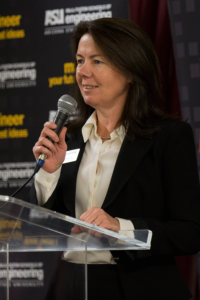
The Polytechnic School Director Ann McKenna. Photographer: Jessica Hochreiter/ASU
Visitors from industry, education and business were invited to tour the space and see student demonstrations of projects and research.
“This space was designed to bring together all of you — our industry partners, our community partners, our students, faculty and staff — to work on ideas to share ideas, to develop solutions in interdisciplinary and meaningful and creative ways,” says Polytechnic School Director Ann McKenna.
McKenna says the concept of a hub is indicative of the energy, collaboration, excitement and fun of bringing people together to solve problems.
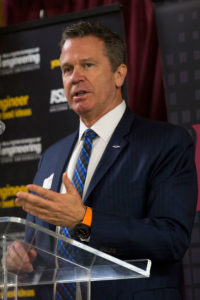
Concept Laser Inc. President and CEO John Murray. Photographer: Jessica Hochreiter/ASU
“I can’t imagine a more exciting time to be alive in manufacturing than today and tomorrow,” says John Murray, president and CEO of Concept Laser Inc., which was recently acquired by General Electric. “As I look at the forecast, it’s 10X out of the gate — 10X the amount of business, the number of machines, the research and development — everything is accelerating at a pace that’s really hard to imagine.”
Murray says Concept Laser is excited to connect with ASU students in order to find the talented people industry partners need as the field grows.
“We are just scouring the earth trying to find talented engineers, technicians and materials science people who can really bring a lot of vision and help this technology expand,” Murray says. “Education is an absolute cornerstone to this entire industry and its ability to expand, and we’re excited to be a part of it.”
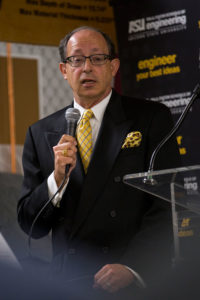
Honeywell Aerospace Engineering Fellow – Additive Manufacturing Don Godfrey. Photographer: Jessica Hochreiter/ASU
Don Godfrey, Engineering Fellow – Additive Manufacturing at Honeywell, recounted the experiences Honeywell has had working with “brilliant young minds” at ASU. Honeywell is a long-time partner to the Polytechnic School, having sponsored many eProjects, in which student teams work on real-world problems presented by industry.
They’re also currently working with four students who have been able to reduce the weight of a bracket by 50 percent. In another capstone project, students are helping to develop a new alloy for additive manufacturing. Students are working on increasing understanding of the alloy and the Manufacturing Research and Innovation Hub will soon begin to make parts with it. What they learn will be part of a million-dollar contract to kick start Honeywell’s Czech Republic program.
PADT Co-founder Rey Chu benefited from long-standing industry partnerships with the university as a proud graduate of ASU with a master’s in manufacturing.
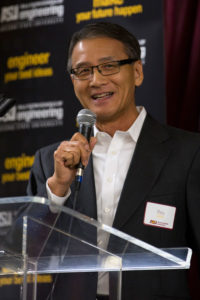
Phoenix Analysis & Design Technologies (PADT) Co-founder Rey Chu. Photographer: Jessica Hochreiter/ASU
“I received a wonderful education that gave me the foundation that allowed me to have a very prosperous and successful career for the past 30 years,” Chu says. “I was able to go into the workplace and take all my research work that I’ve done and contribute from day one. From a personal perspective, this industry and university collaboration will really benefit students and give them a really good foundation to allow them to find a good career going forward and benefit industry.”
There are many more opportunities for the university and the Polytechnic School in particular to partner with local industry in manufacturing.
“We have a lot of very prominent manufacturers in the state of Arizona, but beneath that are upwards of 4,500 small-medium size manufacturing companies who need the workforce and who need the talent that we’re trying to create,” says Malcolm Green, associate director of corporate engagement at the Fulton Schools. “We invite businesses who have not yet participated [as a partner with the Polytechnic School] to join our cause: participate by hiring a student, participate in the student projects in our eProject programs, participate through internships and participate through mentoring — we all wouldn’t be where we are if we didn’t have strong mentors in our lives.”
Assistant Professor Keng Hsu has also been instrumental in this effort as the director of the Additive Manufacturing Center within the Manufacturing Research and Innovation Hub.
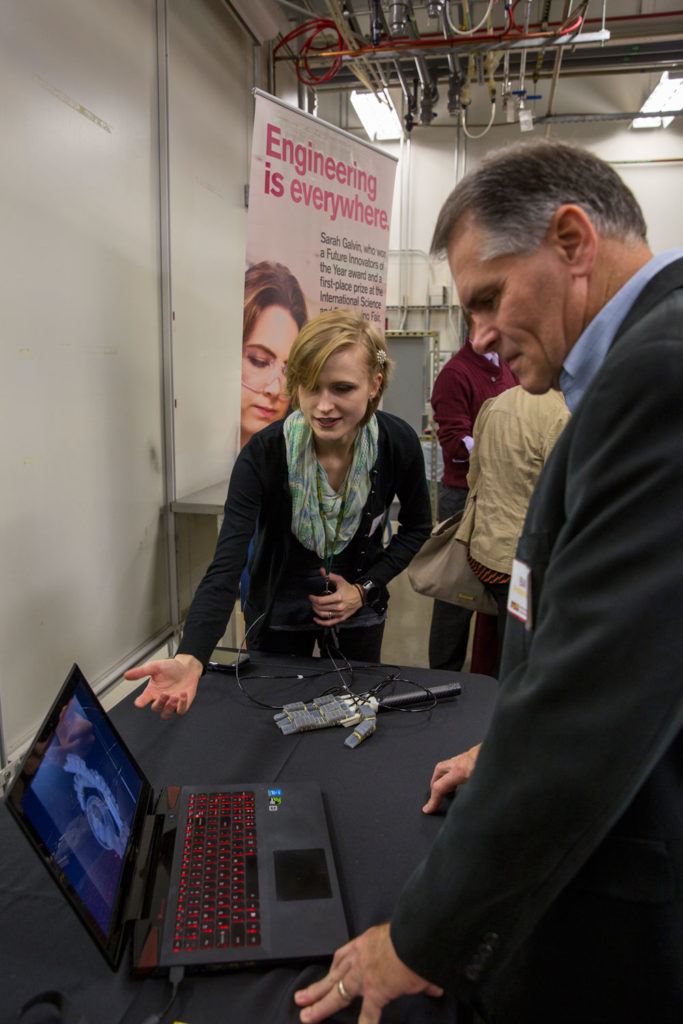
Humans are often at the center of technology developed at the Polytechnic School and the Manufacturing Research and Innovation Hub. Photographer: Jessica Hochreiter/ASU
“He’s done a fantastic job of creating a program that’s feeding the pipeline for the employers, and we’re very appreciative of everything that he’s doing,” says Green.
Squires notes that the Fulton Schools will soon be the largest producer of talent at all degree levels along with the largest college of engineering in the country.
“To maintain that status, we’ve got to have the kinds of tools, technologies and people that draw industry to the table,” Squires says. “This facility has the tools and techniques that will advance our educational programs.”
The Polytechnic School is a natural home for this type of center, as the home of the only manufacturing undergraduate degree program in Arizona and one of only 22 ABET-accredited manufacturing engineering programs in the country.
“The Polytechnic School is a school of all things technological with humans at the center of the system,” McKenna says, “and in this case, the humans at the center of the systems are our partnerships. We value those partnerships and it really is what will help us continue to grow as a school and to help our students be successful.”
As a whole, the Fulton Schools emphasize the extracurricular activities that are important for students to learn new skills beyond what they’ve learned in the classroom to grow as engineers.
“The industry is hungry for well-educated talent,” Chu says. “That’s so important and that’s what I see as the opportunity with this Hub — to allow industry to team up with university researchers and graduate students that do wonderful work that really lays the foundation that allows us to grow and benefit the community, the industry and the whole economy.”
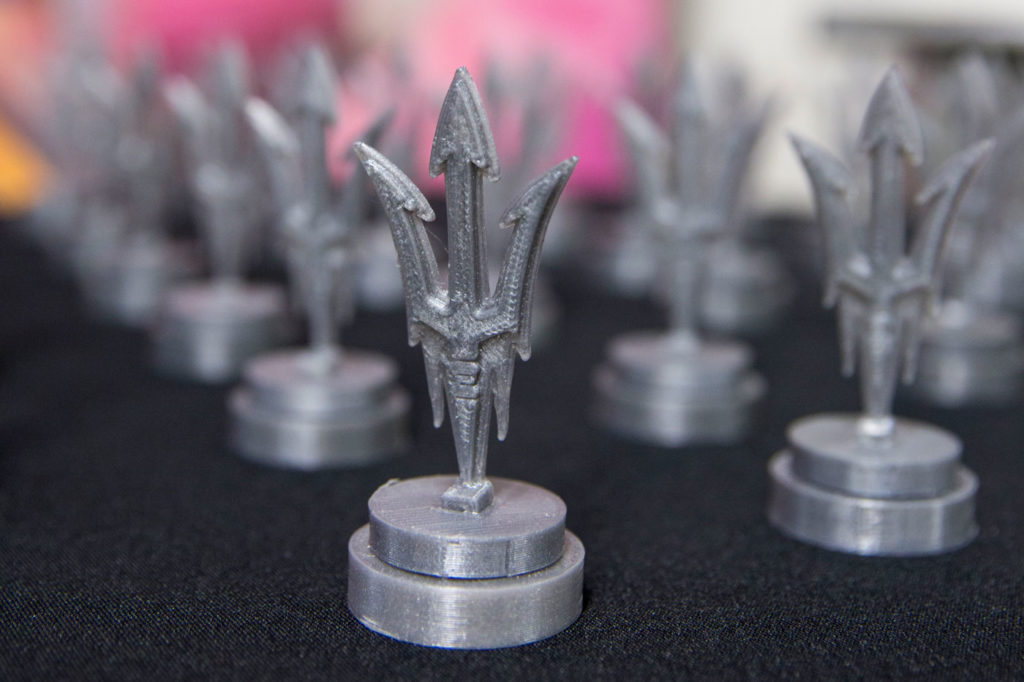
Guests received 3D-printed Arizona State University pitchforks made with equipment in the Manufacturing Research and Innovation Hub. Photographer: Jessica Hochreiter/ASU


